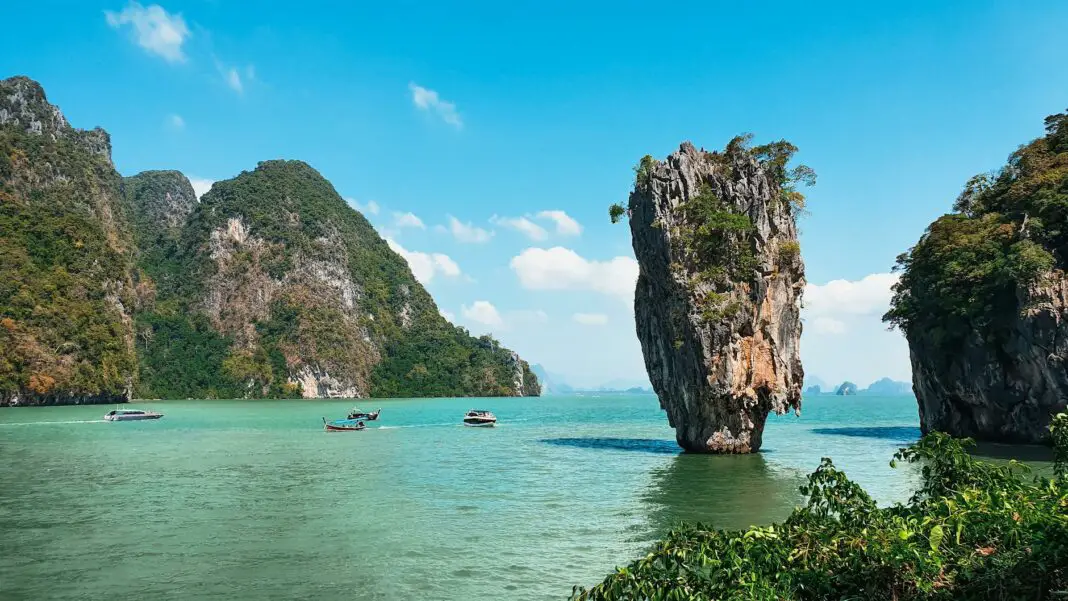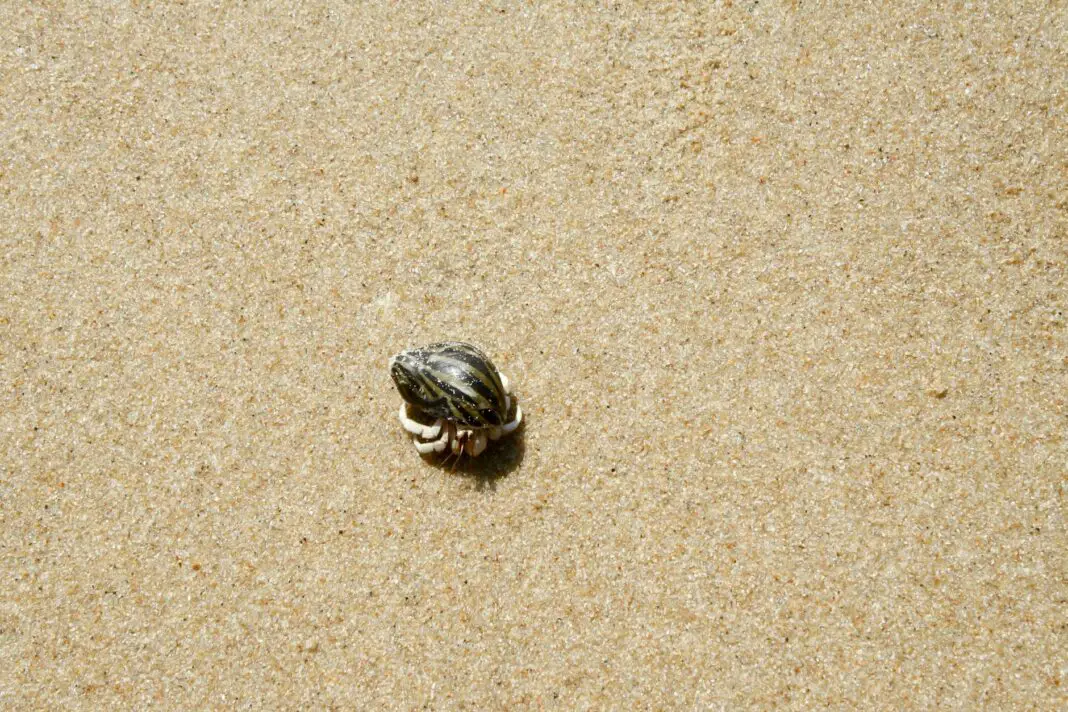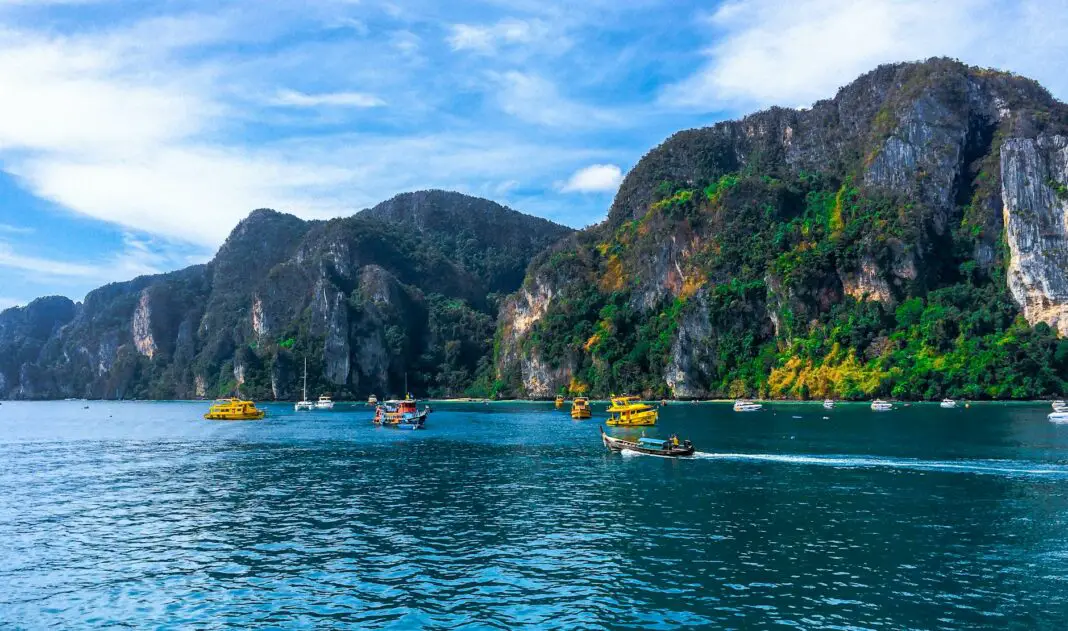Thailand is often celebrated for its breathtaking landscapes, vibrant culture, and bustling street life. However, its reputation as a paradise extends beyond its iconic beaches and lively markets. One of the key facets capturing the attention of eco-conscious travelers is the country’s efforts in marine conservation. This post will delve into the initiatives aimed at preserving Thailand’s marine ecosystems, evaluate their effectiveness, and highlight how these efforts not only safeguard the ocean’s treasures but also pave the way for sustainable tourism, encouraging travelers to engage thoughtfully with their surroundings. Prepare to explore whether Thailand’s marine conservation truly makes a difference.
As we journey through this tropical haven, we’ll uncover various marine conservation projects that demonstrate a commitment to environmental protection and community involvement. These efforts are not merely bureaucratic stipulations but rather heartfelt initiatives that blend local culture with ecological responsibility. Whether you’re a seasoned diver or simply someone who loves the beach, understand how you can contribute to a brighter ecological future during your trip to Thailand. So, let’s navigate through this engaging topic, exploring the depth of marine conservation in the Land of Smiles.
Table of Contents
- Setting the Scene: Why Marine Conservation Matters
- Current Marine Conservation Initiatives in Thailand
- The Impact of Tourism on Marine Conservation
- Community Involvement in Marine Conservation
- The Future of Marine Conservation Efforts
- Taking Action: How You Can Make a Difference
- Summation: A Call to Action for Marine Conservation
Setting the Scene: Why Marine Conservation Matters
The majestic waters surrounding Thailand, home to an assortment of vibrant marine life and ecosystems, are under threat from the impacts of climate change, pollution, and unregulated tourism. From the coral reefs of the Andaman Sea to the diverse species that inhabit various marine environments, understanding the significance of marine conservation reveals insights into how integral these habitats are to the entire ecosystem. These underwater realms are not only crucial for supporting biodiversity but also serve as a vital resource for local communities and the economy, predominantly through fishing and tourism.
Moreover, marine ecosystems act as natural barriers against coastal erosion and play a significant role in carbon sequestration, underscoring their importance in combating climate change. By protecting these delicate environments, we not only ensure the survival of countless species but also promote a healthier planet for future generations. As visitors, it is our responsibility to recognize this importance and contribute positively during our adventures.
Current Marine Conservation Initiatives in Thailand
Thailand has embarked on a remarkable variety of marine conservation initiatives aimed at restoring and protecting its precious waters. Organizations, both governmental and non-governmental, have set forth ambitious projects focused on coral reef restoration, sustainable fishing practices, and the establishment of marine protected areas (MPAs). The government has kicked off projects like the Coral Restoration Project, which employs local divers and volunteers to help restore damaged reefs through transplanting coral fragments and research efforts geared toward reef monitoring.
Additionally, MPAs have been established in prime locations, such as the Similan Islands and Koh Tao, aimed at creating sanctuaries for marine life. These protected areas restrict fishing and other detrimental activities, thus allowing ecosystems to recover over time. The vibrant underwater world is not only saved from further degradation but also assists in attracting eco-conscious tourists eager to experience unspoiled marine environments. The combination of education, awareness, and hands-on action within these initiatives exemplifies Thailand’s commitment to marine health, ensuring that the legacy of its oceans continues for years to come.
The Impact of Tourism on Marine Conservation
Tourism is both a boon and a bane for marine conservation in Thailand. With millions of visitors flocking to its beautiful beaches and diving spots each year, the economic advantages are undeniable, but the pressure on fragile ecosystems cannot be ignored. Unrestrictive tourism can lead to overfishing, littering, and damage to coral reefs, creating a scenario where natural beauty diminishes and biodiversity declines. However, the positive aspect of tourism is that it can also act as a powerful catalyst for marine conservation efforts, raising awareness and generating funds to support initiatives aimed at protecting the environment.
When tourists engage with eco-friendly programs, such as responsible diving tours or marine education workshops, they are not only enjoying a unique experience but are also investing in the preservation of the destination they love. Many local businesses recognize this and have evolved to offer sustainable options, creating a cycle where tourism becomes aligned with conservation efforts. By embracing a conscious travel mindset, tourists can indeed play a vital role in ensuring that Thailand’s marine environments flourish while also enjoying the unparalleled beauty and excitement these waters have to offer.
Community Involvement in Marine Conservation
Engagement of local communities is paramount in the success of marine conservation in Thailand. As the stewards of their environment, local fishermen and residents bring invaluable knowledge and passion to conservation efforts. Recognizing this, several organizations and government programs have actively encouraged community participation, resulting in a sense of ownership and pride over their natural resources. This grassroots involvement enhances awareness of the importance of sustainable practices, shifting mindsets towards more responsible interactions with marine ecosystems.
Programs designed to educate locals about the environmental benefits of healthy oceans have induced remarkable successes. For instance, initiatives that foster alternative livelihoods, such as ecotourism or handicraft workshops, ensure that communities can benefit economically without compromising the marine life they depend on. The collaborative nature of these projects makes it clear that without the support and active participation of local populations, the effectiveness of marine conservation efforts would be greatly diminished. Thus, these initiatives not only highlight the importance of community involvement but also showcase its transformative power in effectively protecting the marine environment.
The Future of Marine Conservation Efforts
Looking ahead, the future of marine conservation in Thailand is filled with promise if the current trajectories continue to progress positively. Technological advancements and increased funding for conservation projects offer hope for enhanced monitoring and protection of marine ecosystems. Innovations, such as drone surveillance and AI-powered data analysis, are being employed to combat illegal fishing and better manage marine protected areas. As a result, authorities can work more efficiently and effectively to safeguard marine biodiversity.
Furthermore, as global awareness of environmental issues continues to grow, there is an increasing demand for sustainable tourism options in Thailand. More travelers are opting for eco-friendly resorts and experiences, which, in turn, drives businesses to adopt more responsible practices. This collective shift in consumer behavior can catalyze significant change, propelling conservation efforts even further. With a combination of technology, public awareness, and community engagement, Thailand possesses the potential to lead as a model for marine conservation on a global scale, inspiring other nations to follow suit.
Taking Action: How You Can Make a Difference
Travel enthusiasts and eco-conscious individuals can actively contribute to marine conservation during their visit to Thailand. Begin by choosing to support local businesses that prioritize sustainable practices. Opt for tour operators who offer eco-friendly diving and snorkeling experiences, ensuring they adhere to environmental guidelines to protect coral reefs and marine life. Participate in beach cleanups or conservation programs offered by local organizations, as your hands-on efforts can lead to tangible improvements.
Educate yourself and others about the marine environment, sharing your knowledge and experiences on social media platforms to raise awareness. This could inspire fellow travelers to adopt similar practices, amplifying the impact. Ultimately, being a responsible tourist goes beyond enjoyment — it involves leaving a positive legacy for future visitors and the local communities who depend on a healthy ocean. Collectively, these small steps can yield significant changes, ensuring that both travelers and Thailand’s marine life can thrive in harmony.
Summation: A Call to Action for Marine Conservation
As travelers, we have the power to influence both the environment and local economies, making sustainable choices during our journeys. Thailand’s marine conservation initiatives illustrate a hopeful and dynamic approach to safeguarding its spectacular underwater realms. By supporting authentic projects and engaging with local communities, we contribute to enduring positive change while enjoying the beauty of this tropical paradise.
Let’s not forget the crucial role we can play in ensuring that Thailand’s enchanting marine environments remain pristine for generations to come. Sustainable tourism provides a viable path forward, making each individual’s actions, no matter how small, impactful. Together, let us embark on this journey, advocating for marine protection not just in Thailand but globally, ensuring that our oceans thrive. Join in, be inspired, and become an advocate for marine conservation.
Frequently Asked Questions
What are the main threats to marine life in Thailand?
Main threats include overfishing, coastal development, pollution, and the impacts of climate change, which all adversely affect marine ecosystems and biodiversity.
How can tourists contribute to marine conservation while visiting Thailand?
Tourists can participate in eco-friendly tours, support local conservation projects, engage in beach cleanups, and choose sustainable accommodation options to contribute positively during their trip.
Are there specific marine protected areas in Thailand?
Yes, Thailand has established several marine protected areas, including Koh Tao, Similan Islands, and Surin Islands, which provide sanctuary for marine life while promoting conservation efforts.
What is the role of local communities in marine conservation?
Local communities play a critical role by participating in conservation programs, sharing traditional ecological knowledge, and promoting sustainable livelihoods that benefit the marine environment.
How can technology aid marine conservation efforts?
Technological advancements such as drone surveillance, satellite mapping, and AI analysis are being utilized for better monitoring, management, and protection of marine ecosystems in Thailand.
Image Credit: Pexels





